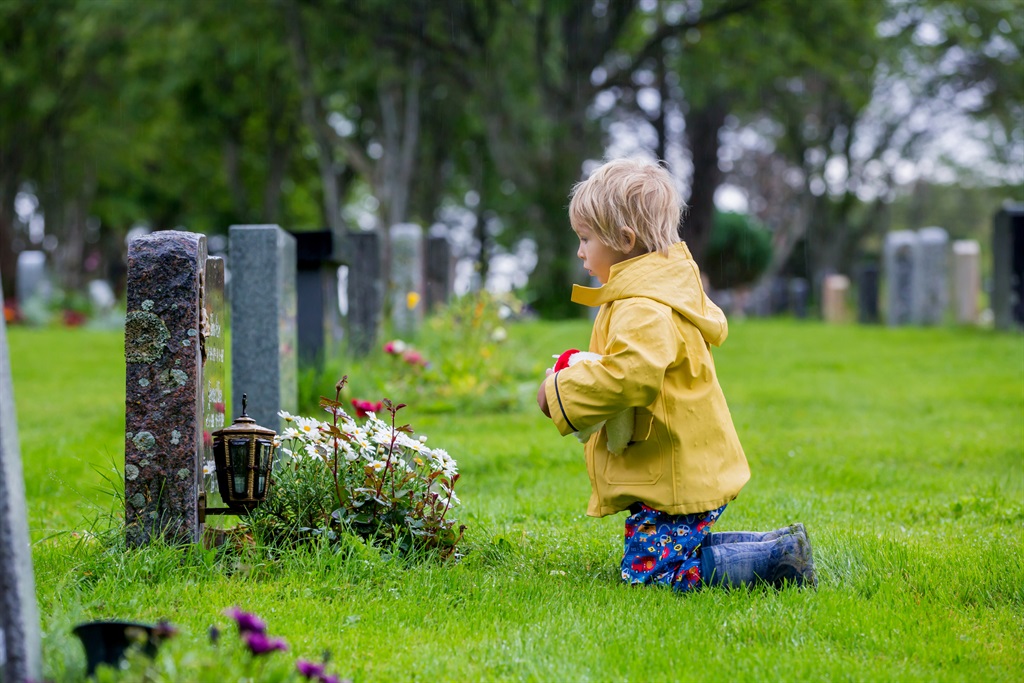Grief is a universal experience, but children perceive it differently than adults. (Photo: Getty Images/ tatyana tomsickova) tatyana tomsickova Live by Design is a weekly News24 column by Dr Helena Dolny and Mapi Mhlangu on mortality and the conversations around it. Having recently returned to the newsroom environment, I'm struck by the high level of exposure young children have to death.
The recent tragedies surrounding the death of pupils in incidents like the Carletonville scholar transport crash, which claimed the lives of 11 pupils, and another scholar bus accident in Mpumalanga that tragically took four more lives, have highlighted the urgent need for dialogue about grief in children. Parents and community members are sharing their experiences, revealing how these events evoke a spectrum of emotions in their children. One mother shared how her child keeps saying he cried to save his sister, reflecting a profound sense of guilt and emotional turmoil that can result from such tragedies.

It's equally poignant to witness children wearing their school uniforms at the funerals of their classmates, their tear-filled eyes telling stories of loss and confusion. As I observe these young mourners, I often wonder: How do they process what they are going through? At what point should we engage children in conversations about death? The nature of childhood grief Grief is a universal experience, but children perceive it differently than adults. According to Dr Alan Wolfelt, an educator on grief: "Children do not grieve as adults do.
Their understanding of death evolves as they grow. They may oscillate between moments of deep sorrow and playfulness, as though toggling back and forth between two worlds." This perspective is crucial for parents and educators when approaching conversations with children regarding loss.
One of my earliest memories of death came when we lost our family dog. The process of burying him was a visceral introduction to the concept of loss. Yet, I don't recall experiencing the death of someone close to me until later in life during the violent upheavals in KwaZulu-Natal.
But family history suggests many relatives passed when I was young, but whether I blocked those experiences or simply lacked the comprehension to understand death is unclear. In witnessing the grief unfolding in today's youth, one must ask: How are our children processing so much loss, and how can we support them through these challenging times? The impact of exposure to death Research indicates that children who experience a significant loss may exhibit changes in behaviour, academic performance, and social interactions. Dr David Schonfeld, director of the National Center for School Crisis and Bereavement, states, "When children experience the death of someone important to them, it can trigger feelings of insecurity, fear, and anxiety.
They may struggle to articulate their emotions, leading to withdrawal or outbursts." Given the societal context of increased exposure to loss—whether through accidents, illness, or violence—it's essential for parents, teachers, and communities to foster open lines of communication about grief. Each child will respond differently based on their age, personality, and past experiences with loss.
Parents can begin introducing the subject of death to their children at a young age, often as early as pre-school years (around ages 3-5). At this stage, children are naturally curious about life and death, even if they don't fully understand the concepts. READ MORE | LIVE BY DESIGN: The evolving role of grandparents: From storytellers to tech-savvy mentors Here are some guidelines on how to approach the topic: 1.
Follow their lead: Children may ask questions about death when they're ready. Pay attention to their prompts and be open to discussing their thoughts and feelings. 2.
If a pet dies or there is a loss in the family, use that opportunity to talk about it. Share your feelings and encourage them to express theirs. 3.
Let children know that it's okay to feel sad, confused, or even angry about death. Discussing emotions openly helps them understand that grief is a natural part of life. How can we support the children when they are grieving? 1.
Create a safe space for discussion: Children need a safe environment where they can express their thoughts and feelings about death. Encouraging open conversations allows them to ask questions and share fears without judgement. Parents and teachers might say things like: "It's okay to feel sad or confused.
Can you tell me what you're thinking?" 2. Validate their feelings: Parents and adults must reassure children that their feelings are normal. Acknowledging emotions rather than trying to suppress them is vital.
Phrases such as, "It's normal to feel sad when someone you care about dies," can help children feel understood. 3. Use age-appropriate language: When discussing death, clarity is key.
Avoid euphemisms like "passed away" or "gone to sleep," which can confuse children. Instead, use straightforward language: "Died means that their body stopped working, and they won’t come back." 4.
Be present: Sometimes, the best support is simply being there. Sitting in silence, offering a comforting hug, or participating in activities together can provide immense comfort to grieving children. As bereavement expert Dr Wolfelt suggests, "Your mere presence speaks volumes.
" 5. Monitor changes in behaviour: Keep an eye on behavioural changes. If a child withdraws or exhibits signs of persistent sadness, it may be beneficial to seek professional help through counsellors or psychologists specialising in childhood grief.
I recently asked a friend who faced the unimaginable challenge of losing her husband when their son was just three years old, how she explained death to a toddler. She recounted: "I was advised to whisper the truth about his dad's passing softly into his ear. At that moment, it felt abstract—something he couldn’t truly grasp.
Yet, it became a ritual for us. As time went on, he began to ask questions, and I found myself repeating the story over and over, each time trying to make sense of it together. Then one day, while playing outside, he noticed an ant that had died.
His innocent curiosity sparked a profound moment: 'Is this what happened to Daddy?' he asked. I nodded, and he continued, 'That ant won't be able to play with his friends or find food like the others anymore, will he?' Again, I affirmed his understanding. I explained that, just like the ant, humans don't come back, but we have funerals to say goodbye.
In that simple exchange, I realised he was searching for a way to comprehend the complex idea of loss, connecting it to the world around him. It was a powerful reminder that even in the darkest moments, children can illuminate our understanding of life and death in unexpected ways." The cover of Before Forever After by Dr Helena Dolny.
(Staging Post) Want to read more articles in this series? Click here. Disclaimer: News24 encourages freedom of speech and the expression of diverse views. The views of columnists published on News24 are therefore their own and do not necessarily represent the views of News24.
We live in a world where facts and fiction get blurred Who we choose to trust can have a profound impact on our lives. Join thousands of devoted South Africans who look to News24 to bring them news they can trust every day. As we celebrate 25 years, become a News24 subscriber as we strive to keep you informed, inspired and empowered.
Join News24 today Related Links Teen (16) arrested for murder Horror crash claims life of 'dedicated', 'committed' Eastern Cape doctor and three people 'Why am I being punished?' woman asks after her 3 children fall ill and die at Gauteng school.



















